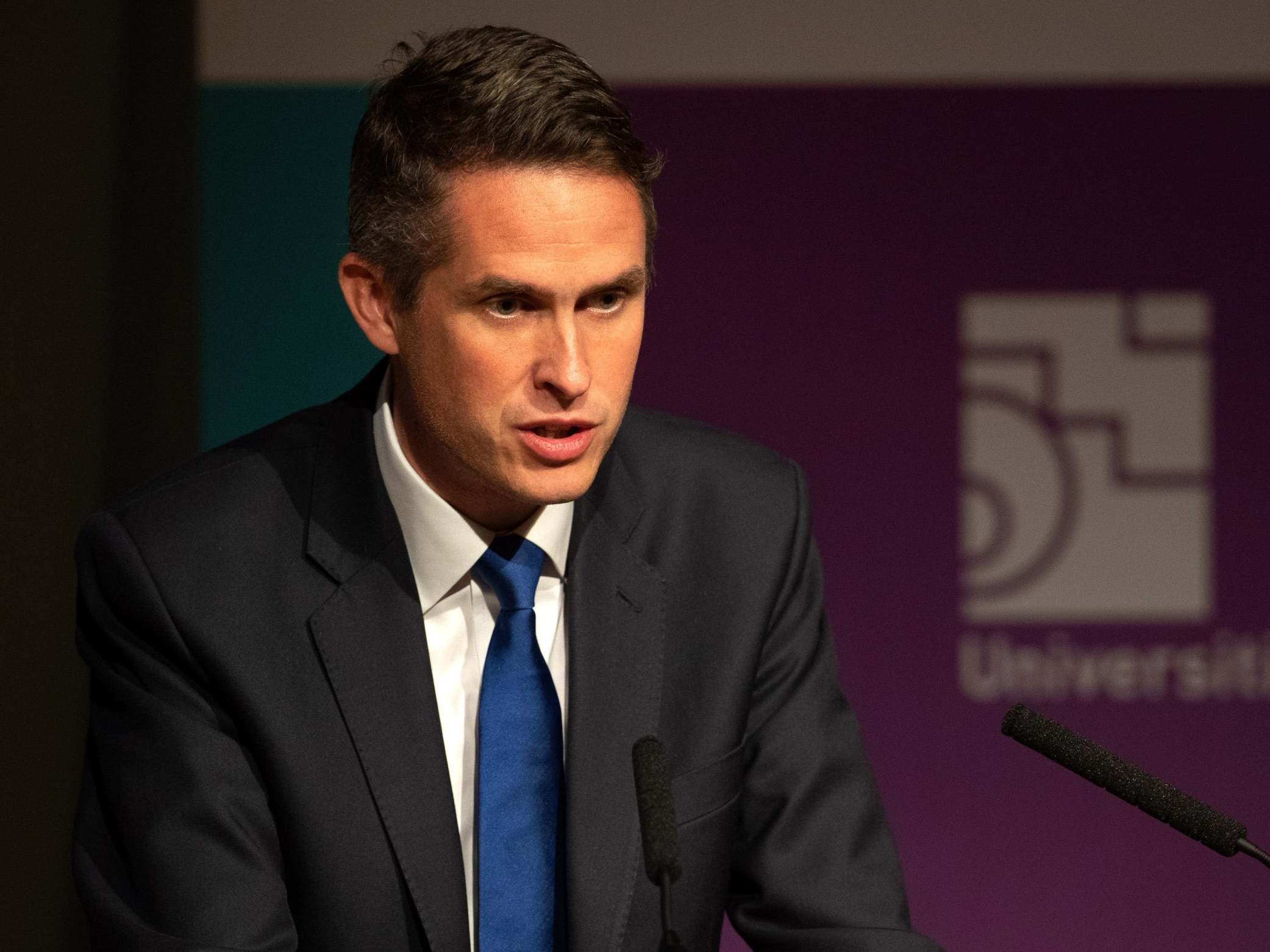‘Entrenched’ grade inflation in danger of making degrees worthless, education secretary warns
Universities should scrap unconditional offers with strings attached, Gavin Williamson says

Your support helps us to tell the story
From reproductive rights to climate change to Big Tech, The Independent is on the ground when the story is developing. Whether it's investigating the financials of Elon Musk's pro-Trump PAC or producing our latest documentary, 'The A Word', which shines a light on the American women fighting for reproductive rights, we know how important it is to parse out the facts from the messaging.
At such a critical moment in US history, we need reporters on the ground. Your donation allows us to keep sending journalists to speak to both sides of the story.
The Independent is trusted by Americans across the entire political spectrum. And unlike many other quality news outlets, we choose not to lock Americans out of our reporting and analysis with paywalls. We believe quality journalism should be available to everyone, paid for by those who can afford it.
Your support makes all the difference.Grade inflation across UK universities is in danger of making degrees worthless to students and employers, the education secretary has warned in his first speech.
The reputation of British universities risks being undermined if the tendency of undergraduates’ marks to drift upwards every year is not clamped down upon, Gavin Williamson told the Universities UK conference in Birmingham.
Speaking to vice-chancellors, Mr Williamson also called on universities to stop making unconditional offers with strings attached, warning institutions to “get their house in order”.
He warned that employers could “lose faith” in grades and international students could be deterred from studying in the UK if the number of top degrees handed out continues to rise.
Mr Williamson said: “In 1997, when I graduated, 50 per cent of students gained a first or 2.1. Last year, 80 per cent of students did so.”
He added that grade inflation has become “more entrenched” and told university chiefs: “If we don’t tackle them, your hard-won reputation for excellence will be undermined.”
“In order to maintain our reputation, students need to be reassured that their degree will be worth something,” Mr Williamson added.
The minister also urged more universities to scrap “conditional unconditional offers” – where an institution tells students they are guaranteed a place as long as they make it their first choice.
Speaking to the press, he said: “It sometimes limits youngsters from the most disadvantaged backgrounds from actually going to the very best academic institution that they possibly could do.”
On the rise of unconditional offers, Mr Williamson suggested that universities could agree a minimum predicted grade threshold, or a maximum proportion of students who are made these offers.
Recent figures from Ucas show that the proportion of university applicants being offered a place on a degree course regardless of their exam grades has risen to nearly two in five despite a government crackdown.
Thirty-eight per cent of 18-year-old applicants from England, Northern Ireland and Wales received an offer with an unconditional element in 2019, compared to 34 per cent in 2018 and 1 per cent in 2013.
Geoff Barton, general secretary of the Association of School and College Leaders, said he agreed with Mr Williamson’s call for universities to stop the misuse of unconditional offers.
He added: “The explosion in unconditional offers is obviously driven by marketing rather than academic considerations.
“Universities should agree a code of conduct which puts a stop to this arms race and ends the misuse of these offers.”
In his speech on Thursday, Mr Williamson also urged vice-chancellors to do more to widen access, saying that it was “not good enough” that poorer white boys are still less likely to go to university.
The new education secretary will be writing to the Office for Students, the higher education regulator, on Monday to set out his priorities for the university sector – including grade inflation and unconditional offers.
The government is expected to respond to the Augar review of post-18 education and funding – which recommended cutting tuition fees to £7,500 – “before the end of winter,” the minister told reporters.
Join our commenting forum
Join thought-provoking conversations, follow other Independent readers and see their replies
Comments